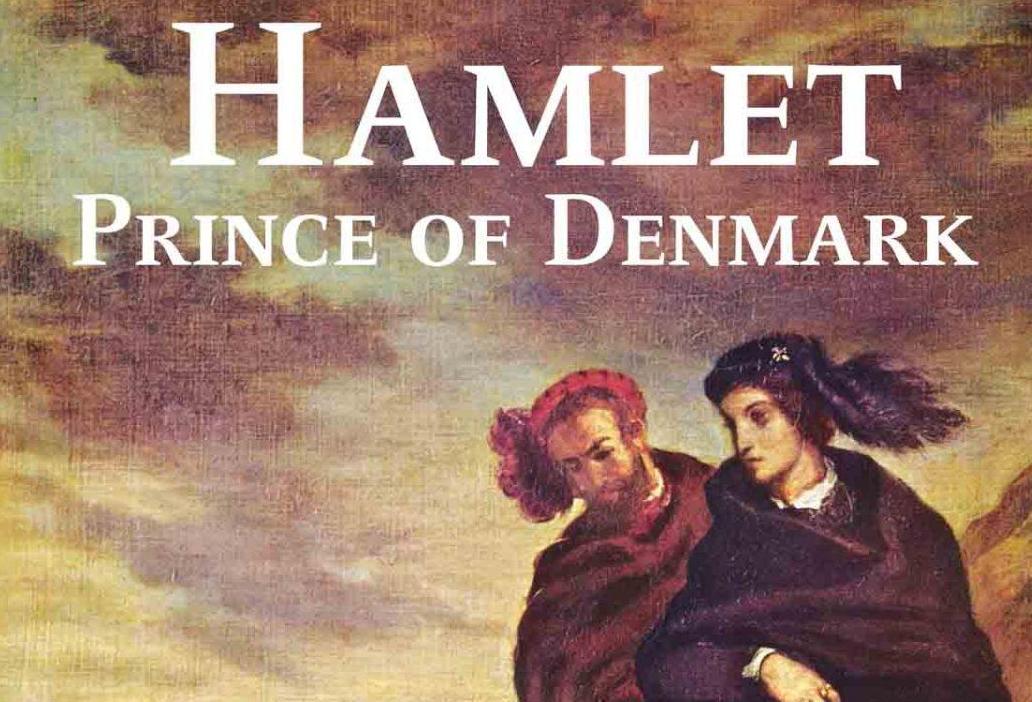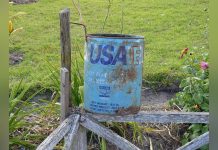Africa-Press – Lesotho. Poesy has always given literature its staying power. Poesy is that manner of writing that uses rhythm, vivid philosophic language, and often rhyme and rhythm to provoke an emotional response.
Today we recall Shakespeare’s Hamlet through his extraordinary “To be, or not to be” soliloquy. That is the height of poesy! The melancholic “To be, or not to be” is found in Hamlet: Act Three Scene One.
It is the opening line of a soliloquy in what is called the nunnery scene. Hamlet is contemplating death and suicide while waiting for his lover Ophelia.
He bemoans the challenges of life but contemplates that the alternative —death — could be worse: “To be, or not to be: that is the question: Whether ‘tis nobler in the mind to suffer
The slings and arrows of outrageous fortune, Or to take arms against a sea of troubles, And by opposing end them? To die: to sleep; No more; and by a sleep to say we end The heart-ache and the thousand natural shocks That flesh is heir to, ‘tis a consummation Devoutly to be wish’d. To die, to sleep…”
The speech explores Hamlet’s confused mindset as he considers murdering his Uncle Claudius, who killed Hamlet’s father and then married his mother to become king in his place. Throughout the play, Hamlet has hesitated to kill his uncle and avenge his father’s death.
Hamlet was likely written between 1599 and 1601; by that time, Shakespeare had honed his skills as a writer and learned how to write introspectively to portray the inner thoughts of a tortured mind.
He would have almost certainly seen versions of “Hamlet” before writing his own, as it pulls from the Scandinavian legend of Amleth. Still, the brilliance of Shakespeare’s poesy is compelling:
“The undiscover’d country from whose bourn No traveller returns, puzzles the will
And makes us rather bear those ills we have Than fly to others that we know not of? Thus conscience does make cowards of us all; And thus the native hue of resolution
Is sicklied o’er with the pale cast of thought, And enterprises of great pith and moment With this regard their currents turn awry, And lose the name of action….
The philosophical nature of the speech also makes it perplexing: None of us know what comes after this life and there is a fear of that unknown, but we are all also aware at times of the futility of life and its injustices.
Sometimes, like Hamlet, we wonder what our purpose here is. Some argue that Hamlet’s speech of whether to endure the tortures of life or just end it could offer insight into Shakespeare’s own thinking in his time of grief.
Perhaps that is why the speech is so universally well-received — an audience can feel the real emotion in Shakespeare’s writing and perhaps relate to this feeling of helpless despair, rendered in very high language of poesy.
Poesy is the other word for the whole subject that includes making or writing of poetry. It is often said that poesy must not be drawn by the ears: it must be gently led, or rather, it must lead, which was partly the cause that made the ancients affirm that poesy is divine.
It is the route of thought and wit. Poesy expresses itself through a piece of poetic writing, which is written with an intensity or depth of expression or inspiration greater than is usual in prose.
Good novelists use poesy too and through it, we find their work stunning and memorable. Imagine Thomas Hardy’s description of a popular beer mug in one of his novels. The mug was called the God-forgive-me:
“Jacob stooped to the God-forgive-me, which was a two-handled tall mug standing in the ashes, cracked and charred with heat: it was rather furred with extraneous matter about the outside, especially in the crevices of the handles, the innermost curves of which may not have seen daylight for several years by reason of this encrustation thereon—formed of ashes accidentally wetted with cider and baked hard; but to the mind of any sensible drinker the cup was no worse for that, being incontestably clean on the inside and about the rim.
It may be observed that such a class of mug is called a God-forgive-me in Weatherbury and its vicinity for uncertain reasons; probably because its size makes any given toper feel ashamed of himself when he sees its bottom in drinking it empty….
” In Far From the Madding Crowd, Thomas Hardy gives an amazing description of one of the drunkards called Mark Clark:
“a brisk young man — Mark Clark by name, a genial and pleasant gentleman, whom to meet anywhere in your travels was to know, to know was to drink with, and to drink with was, unfortunately, to pay for.
” The poesy above marks a high position in English literature.
It means that if you were to meet the likes of Mark Clark at any place in the world, you would immediately decide to want to know him better, for some strange reason.
In this life we often meet people whom we decide to know better. However, with Clark, you would end up sharing a beer with him and yet; the guy always had no money and it is you who would buy the beer!
Mayombe, the novel which was written by one of the major Angolan writers of fiction, Pepetela, between 1970 and 1971 but published only in 1980, is a novel of high poesy.
The statements of Fearless about the revolution and love affairs are often most stunning. In a novel that sets out to show the tensions and conflicts in a liberation movement which had people from all ethnic groups of Angola, the language is most compelling.
Besides Fearless, there is a Comrade Muatianvua who represents universalism and broad minded leadership skills that accrue from his wide travel and experience.
In high language, Muatianvua says, “I was born in the midst of diamonds without seeing them…I sailed the sea for years, from North to South, to Namibia, where the desert joins the sand on the beach, as far as Gabon and Ghana, and to Senegal…in every port I had a wife, in every port I had a row…where I was born there were men of all tongues…now they want me to be tribalist!
From what tribe, if I am all tribes, not only of Angola, but of Africa too? Do I not speak Swahili, did I not learn Hausa like a Nigerian? What is my language, I, who do not say a sentence without using words from different languages?”
Muatianvua is detribalised and dreams of a united Angola in which all people live together. This novel is still relevant across Africa today because virtually all Africa continues to experience sharp ethnic and ideological differences which push people from fighting for the common good of their nations.
Like Fanon’s The Wretched of the Earth, another work of high poesy, Mayombe anticipated even the challenges of independent Africa. NoViolet Bulawayo’s book of 2013, We need New Names, is considered a watershed novel on migration.
The main character is an economic refugee from Zimbabwe to the US. She constantly delves into various mental states, trying to make sense of her not so smooth move from Zimbabwe to the US and the neighbouring regional countries.
NoViolet Bulawayo’s language, as in the blues, is both depressing and exhilarating. Her poesy is very articulate. It invites you to laugh and cry at the same time:
“Look at them leaving in droves, the children of the land, just look at them leaving in droves.
Those with nothing are crossing borders. Those with strength are crossing borders. Those with ambitions are crossing borders. Those with hopes are crossing borders.
Those with loss are crossing borders. Moving, running, emigrating, going deserting, walking, quitting, flying, fleeing to all over, to countries whose names they cannot pronounce…”
And when they get to the destinations of choice, the Zimbabweans and fellow migrants find that there is no sweetness here either: “And the jobs we worked, Jesus-Jesus-Jesus, the jobs we worked….
We took scalding irons and ironed our pride flat. We cleaned toilets. We picked tobacco and fruit under the boiling sun until we hung out our tongues and panted like lost hounds. We butchered animals, slit throats, drained blood…holding our breaths like crocodiles under water, our minds on the money and never on our lives.
Adamou got murdered by that beast of a machine that also ate three fingers of Sudan’s left hand… Ecuador fell from forty stories working on a roof and shattered his spine, screaming, Mis hijos! Mis hijos! on his way down”
This novel juxtaposes a tumultuous Zimbabwe against a well fed and technologically advanced America as seen by a young and impressionable Zimbabwean girl. Darling discovers that Zimbabwe and America are worlds with two very different passwords.
What Zimbabwe does not have materially, America offers but not for free! Closely looked at, America offers its own kind of turmoil to those (like Darling) who do not want to be second class citizens and who constantly claim that they have somewhere ‘my country, my people, our President, our language’ and other things.
With his first novel, The Beautyful Ones Are Not Yet Born, published in 1968, Ghana’s Ayi Kwei Armah suddenly became a household name across the world until this day.
This is one of the earliest novels in Africa to tackle the issue of African self-rule, often called “independence. ” Ghana got independent from Britain and became the first African country to acquire such a status in 1957.
However, in 1966, there was a coup in Ghana. The general and often simple argument is that this coup was due to President Nkrumah’s corruption. The images of rot, dirt and corruption are everywhere and they reach both physical and spiritual proportions, through Armah’s descriptions. Ghana has become suddenly sterile and old and the man has an intense consciousness of it that borders on naturalism.
For example the main character looks at the banister in one building and reflects deeply on the dirt that is deposited on it by people who hold it as they go upstairs: “…apart from the wood itself there were, of course, people themselves, just so many hands and fingers bringing help to the wood in its course towards putrefaction.
Left-hand fingers in their careless journey from a hasty toiletry sliding all the way up the banister… Right hand fingers still dripping with after piss and the stale sweat from the fat crotches.
The callused palms of messengers after they had blown their clogged noses reaching for a convenient place to leave the well-rubbed moisture… The wood would always win.
” He is also assaulted by the constant image of the overflowing bin. There are also moments to reflect on the traveller’s vomit. Then there is the overriding presence of the occupied toilet with all its stink: “Past the big public lavatory the stench claws inward to the throat.
Sometimes it is understandable that people spit so much, when all around decaying things push inward and mix all the body’s juices with the taste of rot…
Hot smell of caked shit split by afternoon’s baking sun, now touched by still evaporating dew. Across the aisle on the seat opposite, an old man is sleeping and his mouth is open to the air rushing in the night with how many particles of what?”
The rot is so overpowering that it sucks everyone to its own centre. This is the picture of corruption’s ability to be everywhere. Even the character called Krishna has his soul eaten up by worms as he meditates.
Poesy is a tool that accompanies a good writer and his task is to apply it in specific fine doses. It shows the depth of the writer’s genius. Every time that you recall a novel or a play, remember that it is the artistry in the words that ring back in your mind. It is the poesy that remains long after the story!
For More News And Analysis About Lesotho Follow Africa-Press






